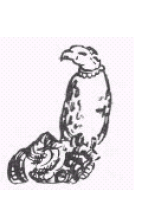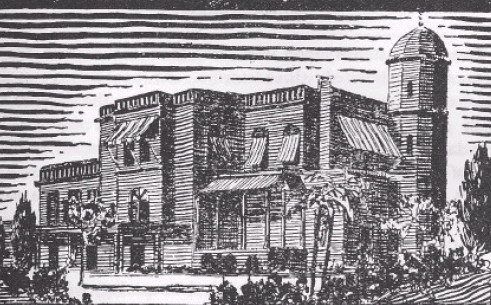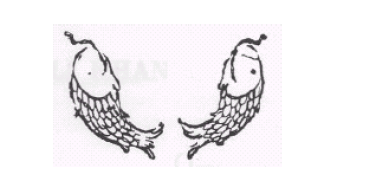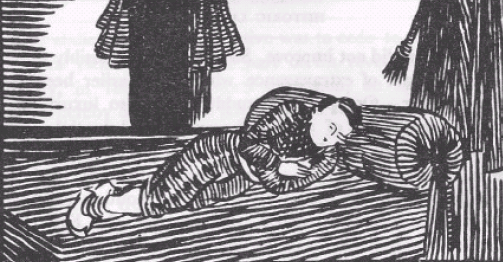Lucknow: V-X
This is a collection of articles archived for the excellence of their content. Readers will be able to edit existing articles and post new articles directly |
This article was written in 1939 and has been extracted from
HISTORIC LUCKNOW
By SIDNEY HAY
ILLUSTRATED BY
ENVER AHMED
With an Introduction by
THE RIGHT HON. LORD HAILEY,
G.C.S.I., G.C.I.E.
Sometime Governor of the United Provinces
Asian Educational Services, 1939.
The Walaiti Bagh
Down The First Turning To the left along Dilkusha Road, going south-east from Dilkusha Palace, the track goes beneath the railway line and comes out on to the river bank. Parallel with the railway, a few hundred yards to the right, stand the walls of the Walalti Bagh and the remains of an imposing entrance gate. Walaiti originally meant not only English but foreign generally, and the garden, once so well known and now degenerated into a vast dhobi-ghat, acquired this name probably from its wealth of unfamiliar plants. High walls surrounded the garden on three sides, the fourth terraced to the river.
The ruins of pillared retreats around the inside of the walls still show traces of coloured stucco embellishments, but nothing remains of the lovely and exotic garden where the royal ladies disported themselves undetected by prying eyes.
The garden does not seem to have played much part in the upheaval of 1857, save that within its walls lie the graves of three men who laid down their lives. Captain Heley Hutchinson and Sergeant (or Corporal) S. Newman, both of the 9th Royal Lancers, who were wounded while pursuing the enemy from their last strong-hold at Musa Bagh, were buried in the walled garden at the riverside.
Mr. Henry P. Garvey, Acting Mate of Her Majesty’s Ship Shannon, who was probably killed during the fighting round the Begum Kothi on March 11, 1858, also lies in the Walaiti Bagh. The Shannon which had put into Calcutta, sent her guns all the way to Lucknow to participate in the fighting. Her sailors manned the guns which had been dragged by hand a considerable part of the difficult road to Lucknow. They took part in the storming of the Khurshaed Munzil and of the Tara Wala Kothi. The guns now stand in the Residency Garden near the museum.
Wajid Ali Shah
1847—1856
Wajid Ali Shah Succeeded To the throne of Oudh on February 14, 1847, on the death of his father Amjad Ali Shah who made a deathbed prophecy that the country would never prosper under his son’s rule. Wajid Ali Shah was not the eldest son, but his elder brother had already been disqualified as feebleminded and incurably vice-ridden. Wajid Ali was reputed to be neither stupid nor unamiable. He had won a place in literature, and some reputation both as poet and writer of prose. It was unfortunate that the happiness of millions depended upon him.
His chief wife was Khas Mahal, niece of the minister Nawab Naqi Khan and mother of the heir apparent. In addition he owned three other wives, four hundred concubines, and twentynine muta wives. Muta is a sort of inferior marriage amongst Mussulmans which may be binding for three hours, three days, three months, or three years.
To house this enormous harem, he built the Kaiser Bagh, “the largest, gaudiest and most debased of all the Lucknow palaces,” at the fabulous cost of about eighty lakhs of rupees. He was known to have had at least forty-five sons and thirty-four daughters who also resided there. Each woman had her own suite of rooms and her own attendants. It was whispered that the King’s chief consort was a profligate woman.
He passed much of his time in his harem amongst the nautch girls who were “celebrated for their sociability and education, the generality of them possessing a colloquial knowledge of Persian”
Rumour had it that the rapid demise of former kings of Oudh had been due to the bite of a snake concealed within the cushions of the throne, so Wajid Ali refused to sit thereon. He contented himself with touching the throne seven times, bowing the while. Local legend said that this throne was the very one used by King Solomon himself.
Wajid Ali Shah possessed histrionic ability but it took the form of a preference for portraying female parts. He always took the chief part in a play which was annually enacted in the silver baradari at the Kaiser Bagh. During festivals, too, he would seat himself crosslegged at the base of a sacred mulberry tree and receive the petitions of his humble subjects who would otherwise have no access to the royal ear. When giving audience, however, he saw himself more as a literary character than as a kingly redresser of wrongs and no material good came of these personal contacts.
Wajid Ali was hypochondriacal, but he refused to consult the Residency surgeon, preferring the medical advice of every sort of quack and witch doctor. One in particular, hearing that the King was suffering from palpitations of the heart, came to Lucknow in the guise of a dervish and took up his residence in the Muftee Ganj quarter. Here he gave himself out to be one of the Kings of the Fairies. He was soon able to extort large sums of money from the King on a false promise of being able to cure him.
Sleeman held strong views on the subject. He said that the King was totally unfit to govern and, moreover, took not the faintest interest in the welfare of his country. He cared only for singing and dancing and for those versed in such arts, be they of ever such humble origin. He brooked no interference, would receive no one but those low caste, lewd entertainers, and insisted that his sons be brought up in the same disgusting debauchery. The consequence was that the whole country despised and hated him. All his substance he squandered upon his low friends, who fleeced him right and left. He commanded that they be treated with all pomp and ceremony wherever they chose to go.
The administration of the kingdom was given over to the Taluqdars who, unqualified to deal with the sudden access of authority, heartily abused their position of trust. Matters reached such a pitch that finally Wajid
Ali received a letter from the Governor-General saying that it had been decided to effect the formal annexation of Oudh to British territory. Wajid Ali was stunned by the news and sat alone weeping. His mother was closeted with him for many hours in conference. During the afternoon the English Resident visited him for another long parley at which the Queen was present. In the evening soldiers came into Lucknow from the Cantonment across the river, cannons were removed from the palaces, and the English raj began.
Lord Dalhousie, the Governor-General, offered to let Wajid Ali Shah and his successors retain the title and dignity of king, and to enjoy sovereign rights within the Palace at Lucknow and the Bibiapur and Dilkusha Parks ; but Wajid Ali refused to accept this or to sign any treaty, saying that treaties were necessary only between equals, and that he was in no position to sign one.
He debased himself by uncovering his head and placing his turban in the hands of the Resident, declaring that he himself was now as nothing. On February 7, General Outram formally annexed the kingdom on behalf of the East India Company. The King left Lucknow on March 13, arriving in Calcutta two months later, having taken with him as many jewels and valuables as he could carry away from Lucknow. In Calcutta he occupied the house and grounds at Garden Reach formerly inhabited by Sir Lawrence Peel, Chief Justice of the Supreme Court from 1848 to 1855. During the troubles of 1857 the ex-King was arrested merely by way of a precaution and detained in Fort William, Calcutta, as a state prisoner until July, 1859.
About seventeen years later a visitor described how the ex-King’s estate was thrown open to visitors on New Year’s Day, He had a pitiable menagerie of neglected, ill-fed tigers, buffaloes, snakes and birds. Guarding the entrance to the house stood sepoys, still clad in obsolete uniforms which they had worn since the days of splendour at Lucknow. Wajid Ali continued to be terribly extravagant.
He was a curious mixture and latterly divided his time between religious observances and his menagerie. On one occasion a pair of vultures took the ex-King’s fancy. Their price, he was told, was Rs. 50,000. Nothing daunted, he insisted upon purchasing them in spite of the fact that the treasury contained only Rs. 35,000. To make up the difference he ordered that one of the two golden bedsteads made during the reign of the great Sa’adat Ali Khan should be broken up, melted down, and the balance paid.
The ex-King’s pension amounted to a lakh of rupees a month, then worth about £120,000 a year. He lived in Calcutta until he died, at the age of sixty-seven, on September 21, 1887.
Wazir Ali-Interloper
1798
When ASAF-UD-DOULAH, fourth Nawab of Oudh, died in 1798, his continued extravagances were found to have left finances in a precarious condition. Two years before his death, Haider Beg Khan, his Prime Minister, had died. The Nawab, who cared nothing for administration or the welfare of his people, then allowed the state to lie at the mercy of any money-grabber who chanced along. Finally, in 1797 Sir John Shore visited Lucknow and persuaded the Nawab to appoint Tafazzul Hussain as his minister, a trustworthy and astute man who could be relied upon to do his best to pull things together.
A few months later Asaf-ud-Doulah died, leaving no legitimate heir. Many years before, however, he had bought a child named Wazir Ali whom he had brought up as his own son, but whom he had never taken the trouble legally to adopt. However, nobody seemed to regard this as a deterrent to his ascending the throne of Oudh. Not only did he do so, but he also obtained the consent of the Resident, Mr. John Lumsden, and of the Governor-General, Sir John Shore.
Wazir Ali turned out to be a man whose vices rivalled those of his adopted father. He had an uncontrollable temper which was easily aroused and greatly disliked English interference. During the coronation year, Tennant visited Lucknow, of which he remarked that the outskirts of the city and the areas far removed from the royal palaces were indescribably filthy and wretched.
For nearly three miles the main street was a sea of mud and filth, and really amounted to little more than a sewer, the centre twelve feet lower than the edges and too narrow to permit of more than one line of wheeled traffic. Vice, debauchery and poverty stalked the streets to the exclusion of prosperity; for only those who had the fortune to be attached to the court had any pretensions to wealth.
The Minister, Tafazzul Hussain, reported to the British, who had installed him in his post, that the scenes of debauchery were growing even more frequent since the accession of Wazir Ali. The result was that Sir John Shore himself again visited Lucknow to institute a thorough and careful inquiry into the reigning Nawab’s antecedents. It was conclusively proved that he had no shadow of claim to the throne of Oudh and so four months after his accession he was deposed and sent to Benares. Wazir Ali is omitted from chronicles referring to the rulers of Oudh, and consequently his portrait does not hang with those of every Nawab and King of Oudh in the Taluqdars’ Hall in the Husainabad Park.
In his stead the Governor-General sent for Sa’adat Ali, a half-brother of Asaf-ud-Doulah, who had been living under British protection at Benares since 1776.



